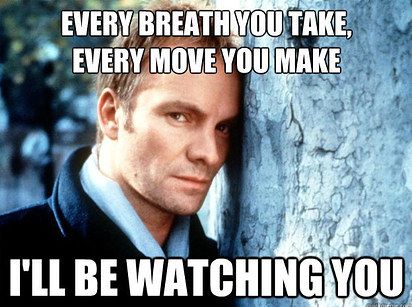Is the BASS a melody instrument?
What do you know about the BASS guitar in context to the rhythm section?
What is your role?
What is your responsibility?
Remember that Spiderman quote?
"WITH GREAT POWER COMES GREAT RESPONSIBILITY"
So the first question really is...
Are we all that powerful, just playing one note at a time?
The answer is...
Yes, indeed! In fact, it is now scientifically proven that the BASS is the most important instrument in the rhythm section (here is a link to the study). In the study, it is said that our brain can understand rhythm best when hearing low notes while discerning between pitches more easily when the notes are in a higher register.
About Mischa Marcks
Hey BASSlover, my name is Mischa Marcks and I’m the dude who thinks that “BASS is all you need“!
It’s my mission to put BASS in the spotlight and show you that... (read more)
Ironically, the BASS is the only instrument in the rhythm section playing a melody pretty much at all times. That means we are the only melody players in the rhythm section. So being able to clearly hear those differences in pitch would be helpful.
Fortunately, our friends behind the mixing desk generally know how to make those pitches be heard more clearly (let me know if you'd like me to go more into the recording and producing side of BASS playing by replying to this podcast). So we will not go into that, today.
But back to the topic. To sum it up. As BASS players, first off we play the root note. The foundation of harmony and melody. Once we get a little better we can start adding chord tones and more complex rhythmical figures. But even in the very beginning where we get by playing only the root note on the one, this BASSline still is a melody. Because the definition of a melody is a group of different pitches played one after the other (for the most part with some added rhythm or a whole lot of it).
In classical music, the BASSline will often be a counter melody that moves opposite to the melody on top. Which shows how deeply BASSline and melody are interconnected.
It's almost like we are shadowing the melody's every move and trying to find a way to make it sound even better.

Because in the end, every note in the melody will create a harmony (relationship) with the notes of the BASSline. We can change a sound of a melody completely by changing what we play. The simplest example would be replacing every root note with the relative minor. It would still be harmonically correct. But all major chords would be minor and all minor chords would be major. This will change the sound of the melody dramatically.
Long story short, I wanted to talk about one of my favourite music genres that goes overboard with this concept.
Reggae!
In reggae, the BASSline is what defines the song. It often is easier to recognize a tune by its BASSline than by the melody the singer is singing.
You might already know that in western music we recycle a lot of chord sequences. The most used pop chord sequence must be I-V-VI-IV (e.g. C-G-Am-F). In reggae not only the chord sequences get recycled, but also the BASSlines. At first, I thought this was a very odd thing to do.
Can't you come up with your own BASSline? What happened to creativity?
But the truth is, that sometimes a BASSline is so inspiring that more than one artist wants to sing on top of it. See how we're digging deeper and deeper into the responsibility of the BASS player. As a reggae BASS player you're not only responsible for one song, but potentially a whole bunch of songs.
What I find really interesting here is that in most cases when we record a BASSline we know the melody and we will go through our BASSline before recording it to make sure there are no notes that clash with the melody. In the scenario just described it's the other way around. The singers will have to make their vocals work on top of the BASSline 🤯
On this month's episode of MISSION BASS LIVE I want to dig deeper into this an other BASS topics. That's why I'm super happy to have Donald Waugh as my next guest!
Donald is a Jamaican-born, now living in Canada, BASSist that does it all. Most people will know him for his crazy, beautiful BASSes and his one-man-band arrangements on Youtube and Facebook, where he plays drums, keys, BASS, ukulele, and sings.
So I'm really looking forward to taking this discussion of the function of BASS vs. vocals in music even further with him and YOU on Saturday's show!
Anywhose, the sun shining in good old Germany. So I'm gonna get me some of that sunlight now and leave you with a cover of Bob Marley's "Sun is shining" by Donald Waugh.
Enjoy ☀️
If you enjoyed this article and you want to support an independent musician creating music without having a label breathing down his neck, then you can do so by sharing this blog with someone who you think would benefit from it.
Thank you for your support!
Love & Bass ✌️
PS: Can’t wait for the next blog post? Then subscribe to my email list and become part of the Mission BASS Tribe. As an a welcome gift you I will send you a bundle of free songs. Sign up here: https://www.mischamarcks.com/3-days-of-strictly-bass/
Spread the word and share the love:


